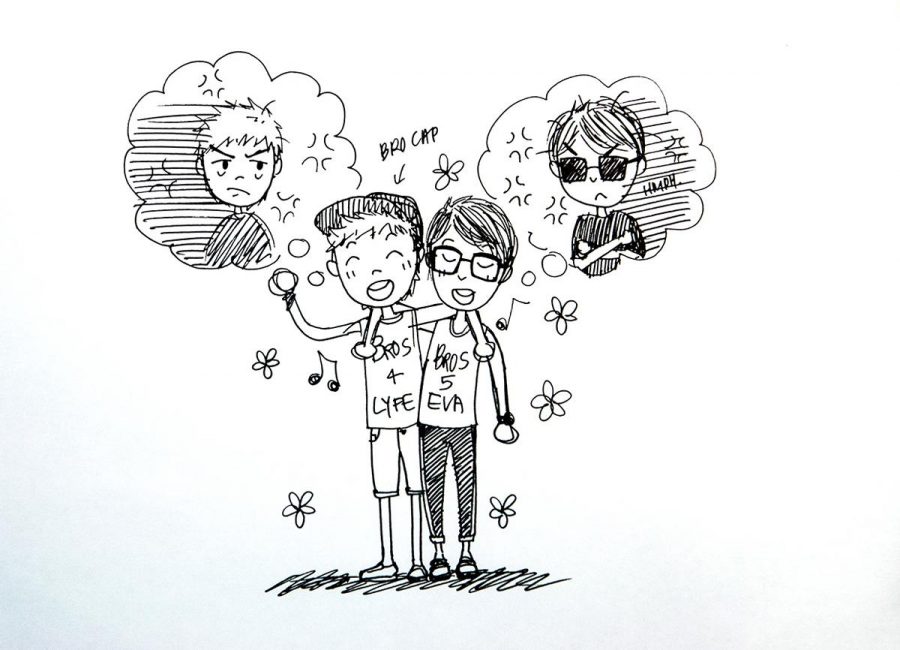Biola’s façades of niceness
Micah Mathis urges students at Biola to practice authenticity rather than prolong the facade of niceness that has come to define campus culture.
Micah Mathis urges students at Biola to practice authenticity rather than prolong the facade of niceness that has come to define campus culture. | Illustration by Everlyn Lee/THE CHIMES
October 21, 2014

Any individual who takes a stroll through the middle of Biola’s campus, wandering past the 40 foot Jesus mural and into the cafe around noon would most likely experience the same cheerful tone day after day, week after week, and even year after year. The atmosphere on campus remains friendly in an unrealistically, intimate way. Students eagerly fuel this attitude with wide smiles and hugs that last just a little too long.
Common Grounds alone has enough enthusiasm to trick a visitor into thinking they have arrived at a youth group’s church retreat, instead of a college university. However, this external peppiness is not an accurate representation of Biola as a whole. After spending three whole years at this school and understanding the culture inside and outside of the “Biola Bubble,” I have noticed how a facade of niceness appears favored over authenticity.
It is nearly impossible to take this stance on Biola culture without sounding cynical and forgetting the positive attributes that exist here. Biola serves as a tremendous blessing to many. It provides a sound education and a source of spiritual development and formation. I do not think Biola has an intrinsically hypocritical or two-faced student culture. However, an incredible amount of social pressure to be joyful goes unacknowledged at this university.
PRESSURE TO HIDE OUR IMPERFECTIONS
The facade of niceness and student conformity to certain norms drives the culture at this school. Although it may not be spoken, the pressure to display only the very best emotional and spiritual aspects of our lives exists. Once this pressure takes root, our fear to be authentic and honest becomes overwhelming because we do not want to present our imperfect parts. So we assume everyone also hides their imperfect parts and begin judging others around us. According to a study from the university of Kansas, every school at every level has gossip and judgment spreading through its student body and each campus deals with them in their respective ways.
Biola differs from many schools because the accepted mold for a respected Biola student has a wider influence. When this mold is not met, or when it does not appear to be met on the outside, judgment ensues and relationship opportunity deteriorates. This kind of judgment and loss of connection may be expected from a secular school, however on a Christian campus, it carries special weight and needs special attention.
If we claim to be active followers of Christ, then it would seem that we should actually embrace each other’s differences and flaws. However these flaws and shortcomings divide people at Biola. We know our own sin and we know that those around us are sinful. However if we cover up this sin with unrealistic niceness and the facade that we are all perfectly content with our spiritual lives, then we cease to live as true brothers and sisters in Christ. In fact, we put an impossible amount of pressure on ourselves and on those around us to conform to this perfect Biola student mold.
The first step requires authentic and open communication about our own flaws. The second and more challenging step requires us to love those who struggle with completely different flaws from our own. Accomplishing both steps may require a trip outside of the Biola bubble mindset in order to see each other the way God sees us. Nothing we can do will make God love us any more or any less, because he already loves us perfectly. When the students of Biola realize and fully accept this, then we can begin to learn to live authentically with one another despite our many flaws.







